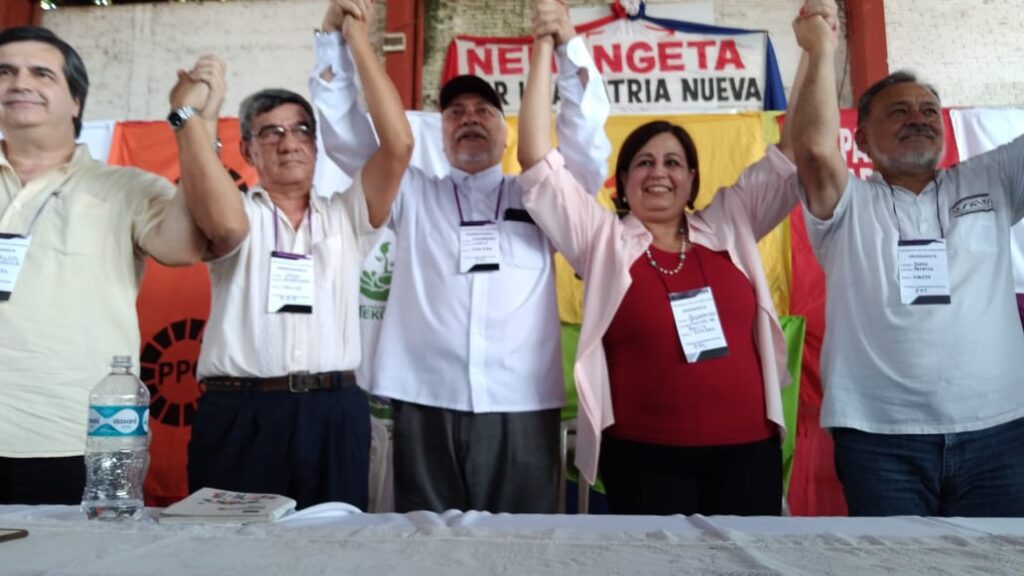The auxiliary bishop of Managua, Monsignor Silvio José Báez, urged the faithful not to “get used to the false peace” that governments impose through fear and weapons. The reflection of the religious comes after two weeks in which the regime of Daniel Ortega and Rosario Murillo has intensified the repression against relatives of April victims, local leaders and opponents.
“Let us not get used to the false peace and the deceptive normality that the powerful want to impose with fear and weapons to preserve their privileges,” said Monsignor Baéz, during his homily this Sunday dedicated to Divine Mercy.
The cleric pointed out that in many countries “peoples still live under political systems that impose terror on people, forcing entire populations into submission or exile in search of a land of peace.”
Monsignor Báez is a witness to the latter. This Saturday, April 23, 2022, the religious served three years since he went into exile at the request of Pope Francis, after receiving death threats for showing support for the victims of the 2018 protests. Still in exile, the Ortega government has dedicated a hate speech against him.
“I left Nicaragua crying, and I have spent these three long years in exile, with the feeling of nostalgia and pain for not being physically present in the midst of my people,” he said recently. in an interview with CONFIDENTIAL.
During his homily, the auxiliary bishop of Managua invited the population to be builders of true peace, the one that springs from justice and produces reconciliation. “There will be no social peace if there is no inner peace in people,” he pointed out.
Monsignor asks that the example of the risen Jesus be followed, who after being crucified returns with his disciples —who were afraid and guilty for denying him and leaving him— and does not reproach or reject them, but full of mercy offers them his peace .
“The text says that ‘the disciples rejoiced to see the Lord’ (Jn 20,30). The disciples rejoice when they stop paying attention to themselves and put it on Jesus and welcome his peace. It is no use continually accusing and condemning ourselves, turning bitterly over our faults”, reflects the Bishop.
On the eve of the fourth anniversary of the April 2018 protests, Vice President Murillo intensified her hate speech against the Catholic Church. “Neither forgiveness nor forgetfulness for those who lie, deceive, false, and also false as prophets or as pastors. Neither forgiveness nor forgetfulness for those who profaned, those who blasphemed, those who pronounced the name of God in vain. Here we know what we have lived through, here we all know each other,” she said.
This Saturday, according to the newspaper La Prensa, Cardinal Leopoldo Brenes was persecuted by officers of the National Police when he went to the Jesús Resucitado parish located in Las Américas 2, and although the priest of this temple assured that he invited themthey remained on the outskirts taking photographs of the participants.
“Speaking of Jesus Christ has its difficulties, it is sad. I think you will not let me lie, we know it through the media, how there is persecution for Christians, how temples have been attacked, because there is like a hatred and that is the experience that the Church lived at the beginning, “he said in his homily on Saturday, Cardinal Brenes.
In Matagalpa a procession is held for the first time in two years
In Matagalpa, the bishop of this diocese, Monsignor Rolando Álvarez, led the procession of the “Route of Divine Mercy” for the first time since 2019, which was put on pause due to the covid-19 pandemic. This activity went from the cathedral of this department to the Divina Misericordia parish, located in Sébaco.
The pilgrimage began with a mass, in which Monsignor Álvarez also reflected on peace, mercy and forgiveness. “It is the mercy that in God is called patience, which achieves that peace, allowing us to have a real authentic experience. Our experience in these Easter celebrations is authentic, we bear witness to that”, he said.
The religious asked to reflect so that “our life is never a cause of division, of an obstacle because in that sense it would be a scandal.” Instead, it should make it possible for “others to look each other in the eye without humiliating themselves without feeling strange.”


















